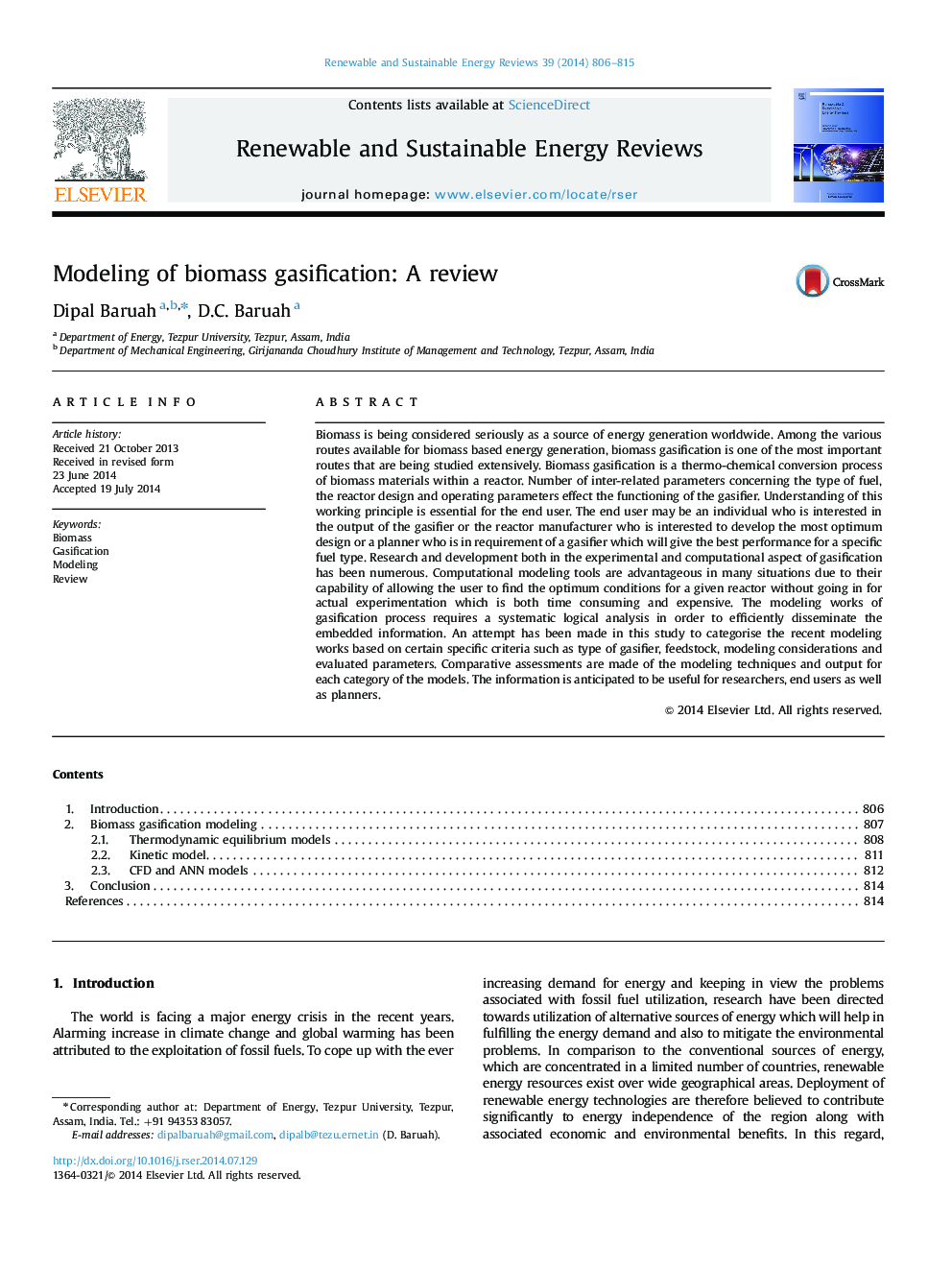| Article ID | Journal | Published Year | Pages | File Type |
|---|---|---|---|---|
| 8119167 | Renewable and Sustainable Energy Reviews | 2014 | 10 Pages |
Abstract
Biomass is being considered seriously as a source of energy generation worldwide. Among the various routes available for biomass based energy generation, biomass gasification is one of the most important routes that are being studied extensively. Biomass gasification is a thermo-chemical conversion process of biomass materials within a reactor. Number of inter-related parameters concerning the type of fuel, the reactor design and operating parameters effect the functioning of the gasifier. Understanding of this working principle is essential for the end user. The end user may be an individual who is interested in the output of the gasifier or the reactor manufacturer who is interested to develop the most optimum design or a planner who is in requirement of a gasifier which will give the best performance for a specific fuel type. Research and development both in the experimental and computational aspect of gasification has been numerous. Computational modeling tools are advantageous in many situations due to their capability of allowing the user to find the optimum conditions for a given reactor without going in for actual experimentation which is both time consuming and expensive. The modeling works of gasification process requires a systematic logical analysis in order to efficiently disseminate the embedded information. An attempt has been made in this study to categorise the recent modeling works based on certain specific criteria such as type of gasifier, feedstock, modeling considerations and evaluated parameters. Comparative assessments are made of the modeling techniques and output for each category of the models. The information is anticipated to be useful for researchers, end users as well as planners.
Keywords
Related Topics
Physical Sciences and Engineering
Energy
Renewable Energy, Sustainability and the Environment
Authors
Dipal Baruah, D.C. Baruah,
